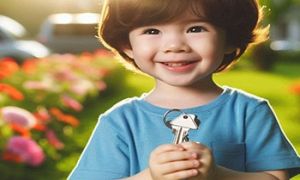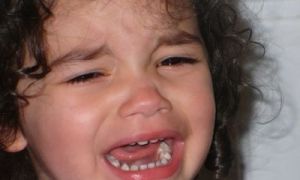

As national reforms tighten mobile phone use in early childhood education and care (ECEC) settings across Australia, educators are asking, "Why not apply similar protections in primary and secondary schools?"
Using blurbs with wall displays in early childhood settings offers a powerful blend of pedagogical value, family engagement, and professional reflection. The following provides blurbs for a variety of activities. Each one is designed to celebrate children's learning, link to EYLF outcomes, and bring warmth and meaning to your wall displays.
A: In early childhood education and care (ECEC) settings across Australia, mobile phone use by educators is now subject to strict national reforms aimed at safeguarding children’s well-being and ensuring professional presence.
Here’s a clear, sector-aligned policy template tailored for early childhood education and care services, ensuring compliance with the upcoming 2026 NQF reforms and reinforcing your commitment to child safety and educator well-being.
Here’s a curated set of critical reflection questions tailored for room displays in early childhood settings—designed to provoke deeper thinking around pedagogy, child voice, aesthetics, and relational intent. These can be used during planning, team reflection, or documentation audits.
Here's a comprehensive, sector-responsive policy and procedure framework for the safe use of digital technologies—including CCTV—tailored for early childhood education settings. It balances child safety, educator well-being, regulatory compliance, and ethical transparency.
High-quality early education and care is more than preparation for school—it’s the foundation for a child’s lifelong well-being, confidence, and achievement. During Early Learning Matters Week, educators, families, and communities come together to celebrate the transformative impact of play-based learning in shaping enthusiastic, capable learners.
Open-ended play activities are all about freedom, exploration, and creativity—especially powerful in early childhood settings where babies and toddlers are discovering the world through their senses and movement. Here’s a rich collection of examples tailored for babies (0–18 months), with variations to suit different developmental stages and settings.
In early childhood education, the decision to defer a child’s school entry by a year is often framed as “staying back.” But educators across Australia are challenging this language, advocating instead for a strengths-based perspective: sending children when they are developmentally ready.
Thanks to the new National Model Code and upcoming regulatory changes under the National Quality Framework (NQF), early childhood services across Australia must now implement robust policies for the taking, use, storage, and destruction of images and videos of children. Here's a sample policy template aligned with the latest updates, effective from 1 September 2025.
 Here is the list of the EYLF Learning Outcomes that you can use as a guide or reference for your documentation and planning. The EYLF… Read More
Here is the list of the EYLF Learning Outcomes that you can use as a guide or reference for your documentation and planning. The EYLF… Read More
 The EYLF is a guide which consists of Principles, Practices and 5 main Learning Outcomes along with each of their sub outcomes, based on identity,… Read More
The EYLF is a guide which consists of Principles, Practices and 5 main Learning Outcomes along with each of their sub outcomes, based on identity,… Read More
 This is a guide on How to Write a Learning Story. It provides information on What Is A Learning Story, Writing A Learning Story, Sample… Read More
This is a guide on How to Write a Learning Story. It provides information on What Is A Learning Story, Writing A Learning Story, Sample… Read More
 One of the most important types of documentation methods that educators needs to be familiar with are “observations”. Observations are crucial for all early childhood… Read More
One of the most important types of documentation methods that educators needs to be familiar with are “observations”. Observations are crucial for all early childhood… Read More
 To support children achieve learning outcomes from the EYLF Framework, the following list gives educators examples of how to promote children's learning in each individual… Read More
To support children achieve learning outcomes from the EYLF Framework, the following list gives educators examples of how to promote children's learning in each individual… Read More
 Reflective practice is learning from everyday situations and issues and concerns that arise which form part of our daily routine while working in an early… Read More
Reflective practice is learning from everyday situations and issues and concerns that arise which form part of our daily routine while working in an early… Read More
 Within Australia, Programming and Planning is reflected and supported by the Early Years Learning Framework. Educators within early childhood settings, use the EYLF to guide… Read More
Within Australia, Programming and Planning is reflected and supported by the Early Years Learning Framework. Educators within early childhood settings, use the EYLF to guide… Read More
 When observing children, it's important that we use a range of different observation methods from running records, learning stories to photographs and work samples. Using… Read More
When observing children, it's important that we use a range of different observation methods from running records, learning stories to photographs and work samples. Using… Read More
 This is a guide for educators on what to observe under each sub learning outcome from the EYLF Framework, when a child is engaged in… Read More
This is a guide for educators on what to observe under each sub learning outcome from the EYLF Framework, when a child is engaged in… Read More
 The Early Years Learning Framework describes the curriculum as “all the interactions, experiences, activities, routines and events, planned and unplanned, that occur in an environment… Read More
The Early Years Learning Framework describes the curriculum as “all the interactions, experiences, activities, routines and events, planned and unplanned, that occur in an environment… Read More

Quality Area 2 focuses on children's health and safety within educational and care settings, as...
See more...
Writing a critical reflection in early childhood education involves a thoughtful examination of your experiences...
See more...
You have a new child starting in your room, their excited, their parents are happy...
See more...© 2009-2025 Aussie Childcare Network Pty Ltd. All Rights Reserved.

